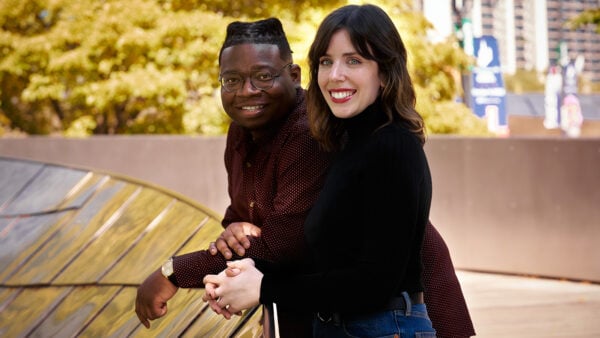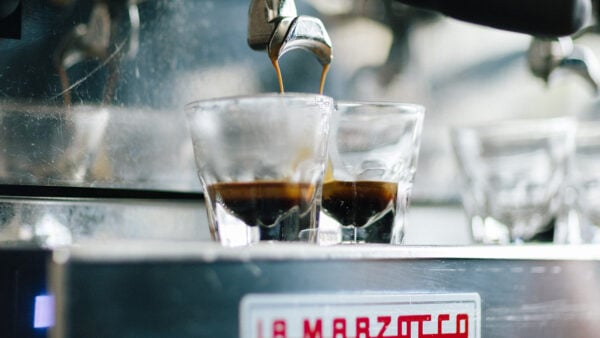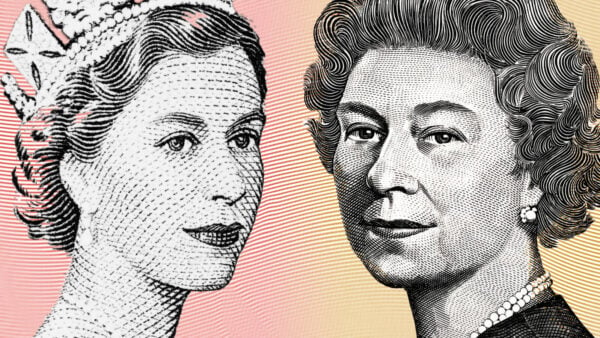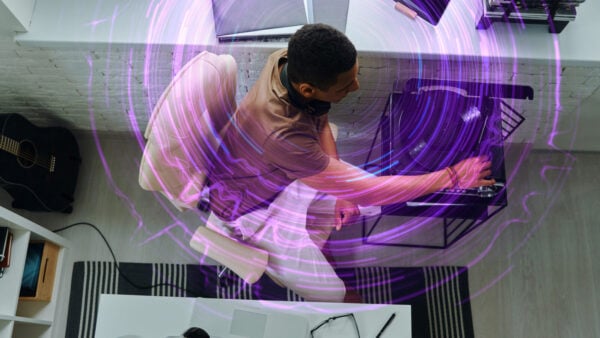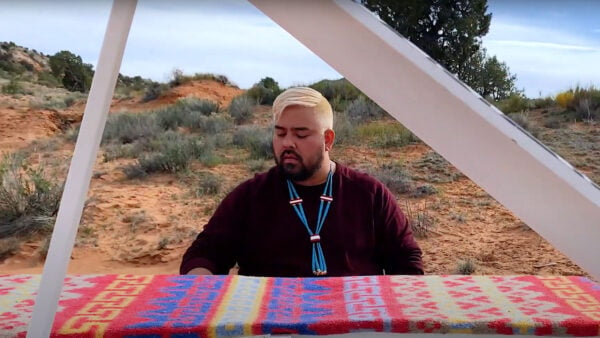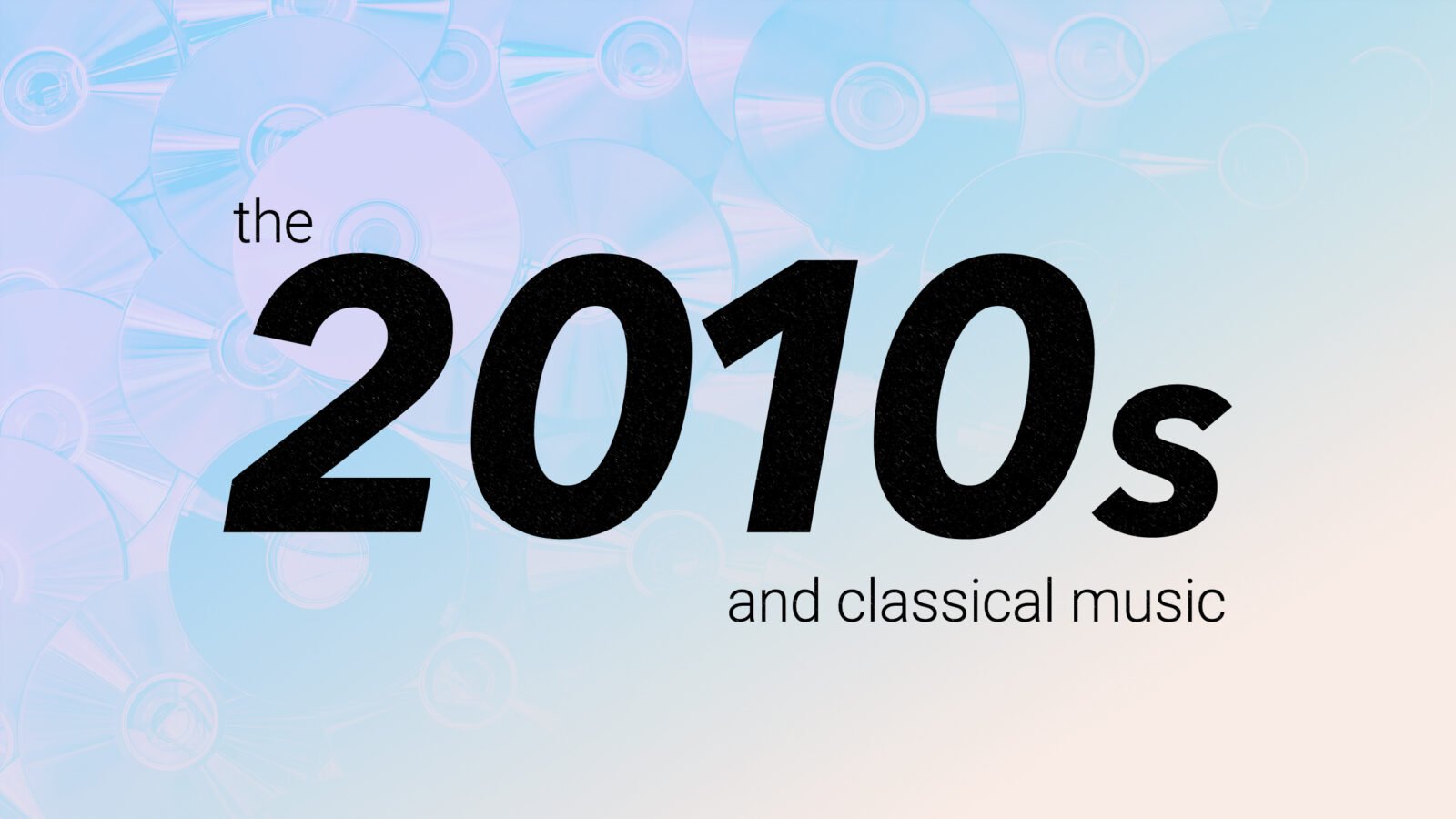 The 2010s have come and gone. It was a tumultuous decade, replete with astounding artistic highlights, superlative new voices, and watershed moments of reckoning. WFMT hosts and staff reflected on what the past decade brought for classical music, and what the new decade may have in store.
The 2010s have come and gone. It was a tumultuous decade, replete with astounding artistic highlights, superlative new voices, and watershed moments of reckoning. WFMT hosts and staff reflected on what the past decade brought for classical music, and what the new decade may have in store.
What trend or change from the past decade surprised you most?
- The movement away from physically owning music to having instantaneous access to every type of music in the world — Lisa Flynn, Program Host
- As technology advances, classical music reaches new audiences and longtime listeners are surprised by new discoveries. While there are still improvements to be made, platforms such as Spotify and YouTube have aided in the proliferation of music of all kinds. — Anna Goldbeck, Continuity Coordinator
- The wide scope of orchestral music composed for the video game industry — Maggie Clennon Reberg, Program Host & Producer
- Pleasantly surprised by the increase in performances of works by women composers and seeing more women conductors — Candice Agree, Program Host & Producer
- The support for survivors and the and ripples of change effected by the #MeToo movement surged through the classical world in a way I didn’t quite expect. Many industries saw change and growth, but the very order of our most respected venues and ensembles came under more scrutiny than ever before. The naming of so many predators and perpetrators and the volatility of the industry in the face of social change was felt on every level; international, national, and locally as well. It was an alarming call to listen to anyone and everyone who is influenced by the power dynamics at play in our industry. — Kylie Harwell, Digital Contributor
- I was surprised and delighted to see new operas dealing with contemporary subjects and connecting strongly with audiences. I think we will look back at the first decades of the 21st century as pivotal for opera. — George Preston, Vice President & General Manager
What was your favorite classical album of the decade?
- Bates: The (R)evolution of Steve Jobs — George Preston, Vice President & General Manager
- Mason Bates: Works for Orchestra by San Francisco Symphony, Michael Tilson Thomas— John Piotrowski, Traffic Manager
- If on a Winter’s Night… (technically it was released in late 2009) by Sting — Maggie Clennon Reberg, Program Host & Producer
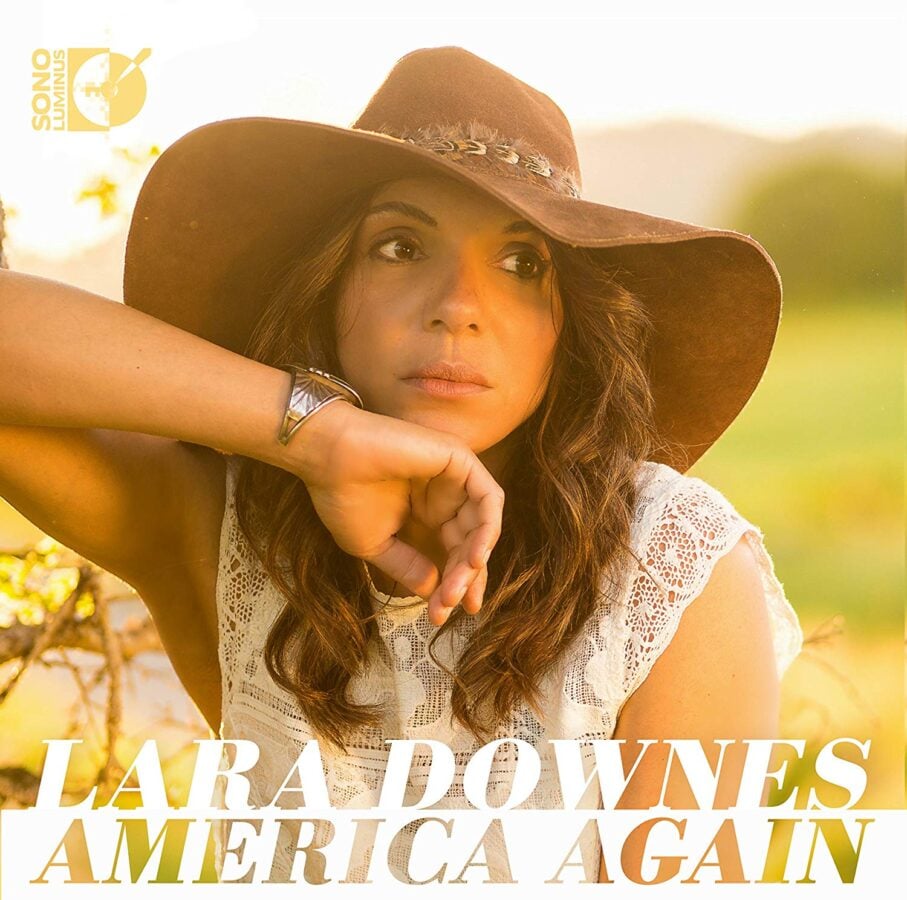
- America Again (2016) by pianist Lara Downes and Inspiration (2018) by cellist Sheku Kanneh-Mason — Anna Goldbeck, Continuity Coordinator
- Impossible to choose! — Lisa Flynn, Program Host
- Golijov: Azul (2017) by The Knights. To me, this is what a 21st-century classical music album should sound like. Full of modern, classic, and diverse sounds. — Daniel Goldberg, Producer
- Chamber Music: Last Leaf (2017) by Danish String Quartet; Peaks (2015) by TIGUE; BBC Symphony Orchestra’s recording of John Adams’ Doctor Atomic — Kylie Harwell, Digital Contributor
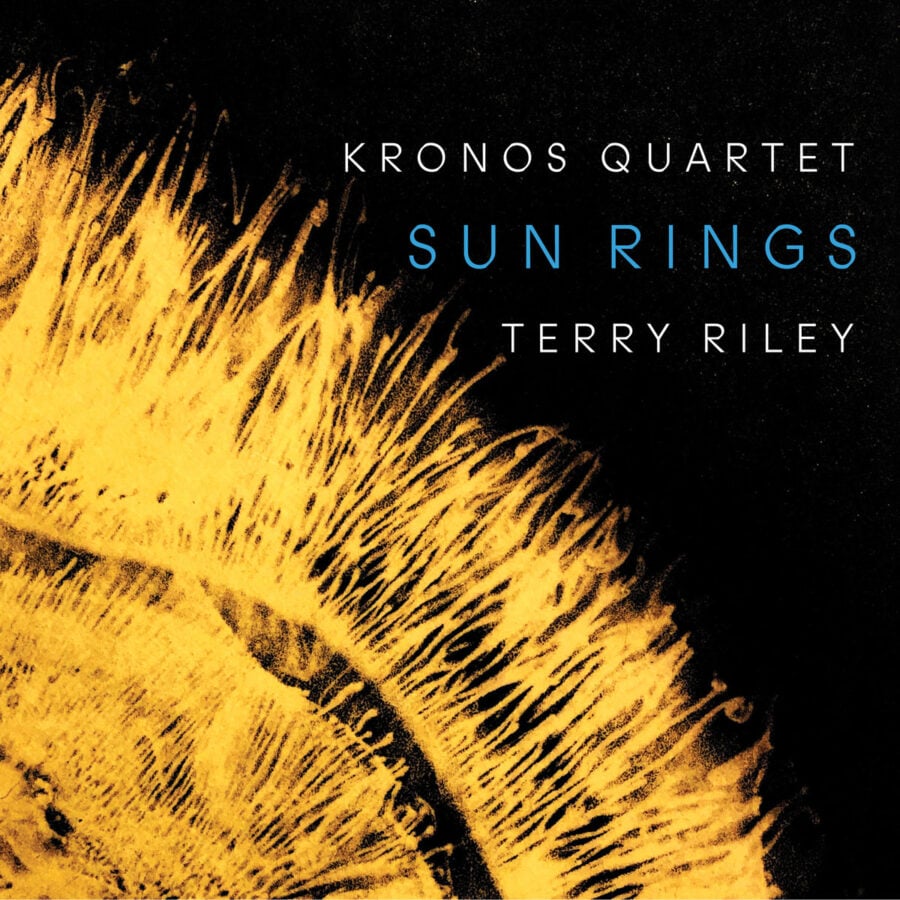
- Kronos Quartet’s Sun Rings, a composition based on the ensemble’s 2002 collaboration with Terry Riley. Here Riley created a beautiful and evocative sound world combining the earthly, acoustic sounds of Kronos with the San Francisco-based vocal ensemble Volti, and the extraterrestrial, electronic sounds of plasma waves as recorded in space by the Voyager probes and shared by NASA. — Louise Frank, Producer
- Liquid Melancholy – I’m biased [Mary was nominated for a Grammy Award for her engineering work on this album] — Mary Mazurek, Recording Engineer
- It’s new and it’s old: Artur Schnabel in Performance with Joseph Szigeti & Pierre Fournier — Candice Agree, Program Host & Producer
- The Polish Radio Symphony Orchestra’s recording of Górecki: Symphony No. 3, the Symphony of Sorrowful Songs — Tad Hassa, Music Database Assistant
- Chicago Symphony Orchestra Brass Live; Brahms: The Symphonies by Berlin Philharmonic, Simon Rattle — Kristina Elstner, Operations Assistant
Who was your favorite new (or new to you) composer or artist of the decade?
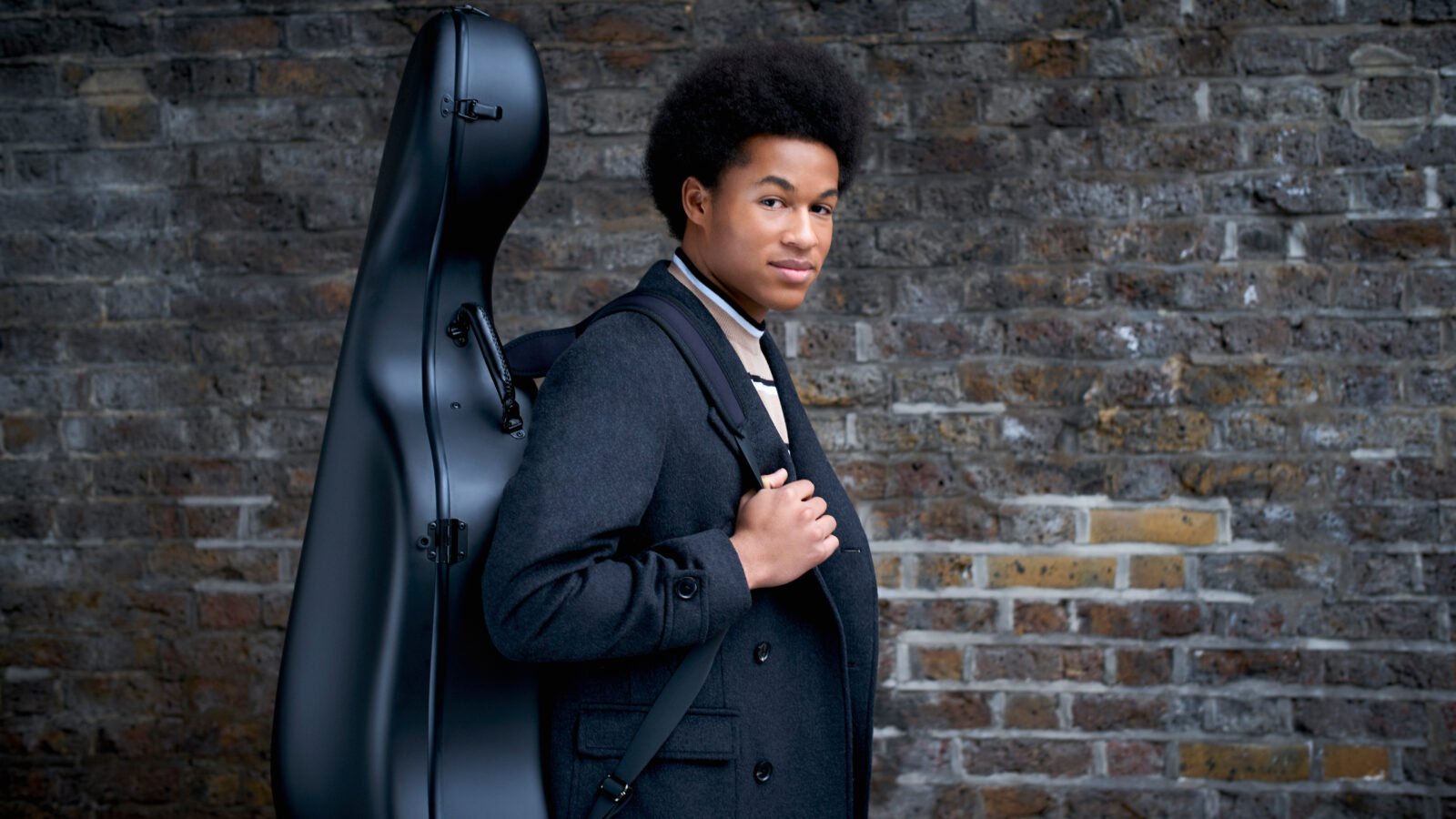
Sheku Kanneh-Mason (Photo: Lars Borges)
- Sheku Kanneh-Mason — Anna Goldbeck, Continuity Coordinator
- Mason Bates — John Piotrowski, Traffic Manager
- Ola Gjeilo — Maggie Clennon Reberg, Program Host & Producer
- Caroline Shaw — Lisa Flynn, Program Host
- I’m a big fan of Rhiannon Giddens as a vocalist. Okay, she’s not known as a classical singer, but she’s amazing, AND she’s writing an opera! — George Preston, Vice President & General Manager
- Mason Bates: The amount of work Mason Bates has put out in the last decade is staggering. Writing symphonic, operatic, chamber, vocal and electronic music he is in tune with the pulse and sound of 21st-century classical music. Being the CSO’s Mead composer-in-residence from 2010-2015, we were able to get a good look at what he is capable of here in Chicago. — Daniel Goldberg, Producer
- Composer and pianist Lera Auerbach — Kylie Harwell, Digital Contributor
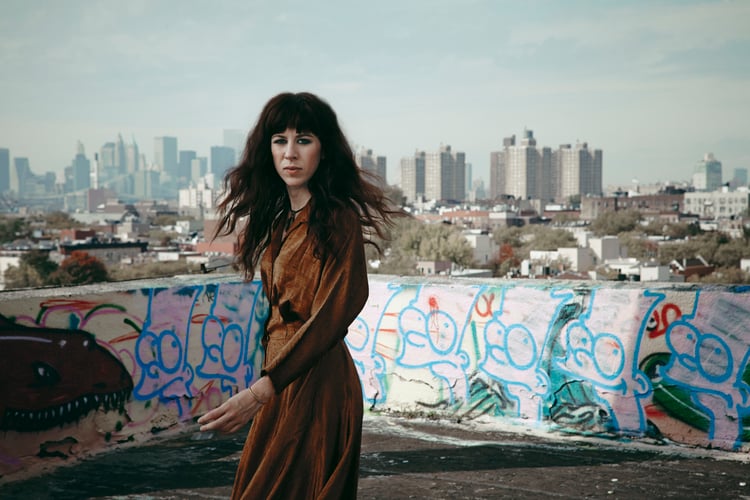
Missy Mazzoli
- Mason Bates, Missy Mazzoli, and James Stephenson — Mary Mazurek, Recording Engineer
- Angele Denoke. I first heard her live at the Opéra Bastille in Schönberg’s Erwartung. — Candice Agree, Program Host & Producer
- Russian Renaissance, the winner of the M-Prize Competition, is an incredible ensemble that shares all kinds of repertoire at the highest level. — Michael San Gabino, Producer
What was your favorite new (or new to you) classical composition of the decade?
- In 2019, Chicago Sinfonietta released an album as part of “Project W,” its initiative to highlight diverse women composers. Through that album, I heard William Grant Still’s arrangement for orchestra of Florence Price’s Dances in the Canebrakes for the first time — Anna Goldbeck, Continuity Coordinator
- Forged Sanctuaries: String Quartet No. 2 by Jonathan Bailey Holland — John Piotrowski, Traffic Manager
- John Luther Adams’ Inuksuit — Lisa Flynn, Program Host
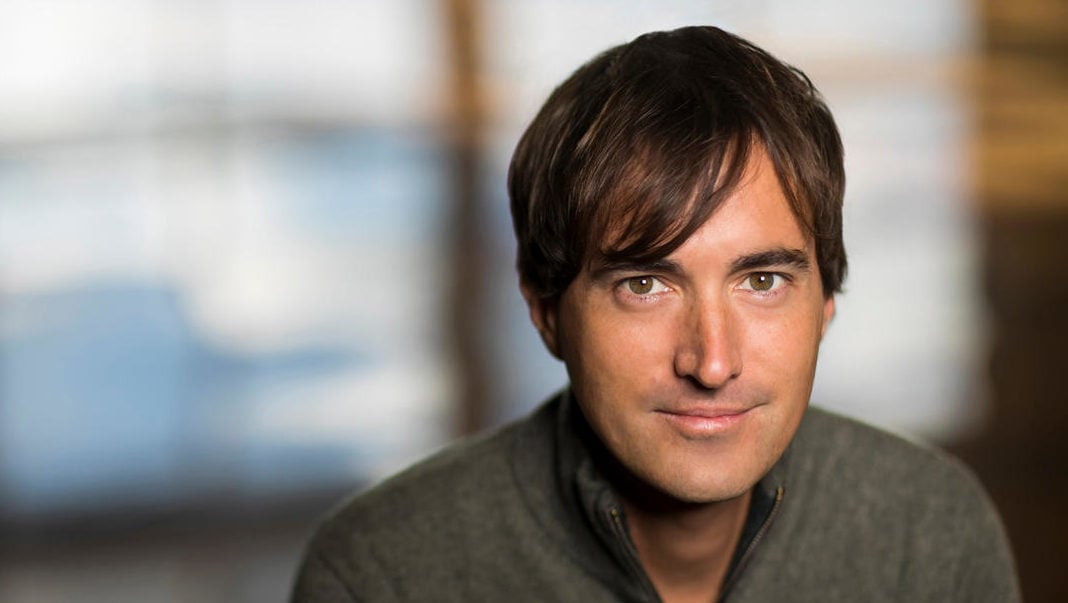
Mason Bates
- Still going with The (R)evolution of Steve Jobs — George Preston, Vice President & General Manager
- Jens Kruger’s Roan Mountain Suite. This work mixes the great folk tunes of the Carolinas with serene classical writing for string quartet — Daniel Goldberg, Producer
- Consider the remarkable, shimmering finale of the Clarinet Concerto that Marc Neikrug wrote in 2010 for the Milwaukee Symphony Orchestra’s principal clarinet Todd Levy; Ninety Eight Point Seven, a fanfare that Anna Clyne, then one of the Chicago Symphony Orchestra’s Mead Composers-in-Residence, created for WFMT’s 60th birthday in 2011; Miguel Kertsman’s 2018 Concerto for Violin, Horn, Shofar and Orchestra; and Weightless Dreams, a song cycle inspired by American women astronauts that James Kallembach composed for soprano Tamara Wilson. I also loved hearing the modernist, unbridled Piano Quintet that Leo Ornstein wrote in 1927. Marc-André Hamelin and the Johannes String Quartet played this phenomenal, lesser-known work at the Santa Fe Chamber Music Festival in 2015. — Louise Frank, Producer
- Having been on the radio in New York City on September 11, 2001, not far from the Twin Towers, John Adams’s On the Transmigration of Souls is a memorable recording for me — Candice Agree, Program Host & Producer
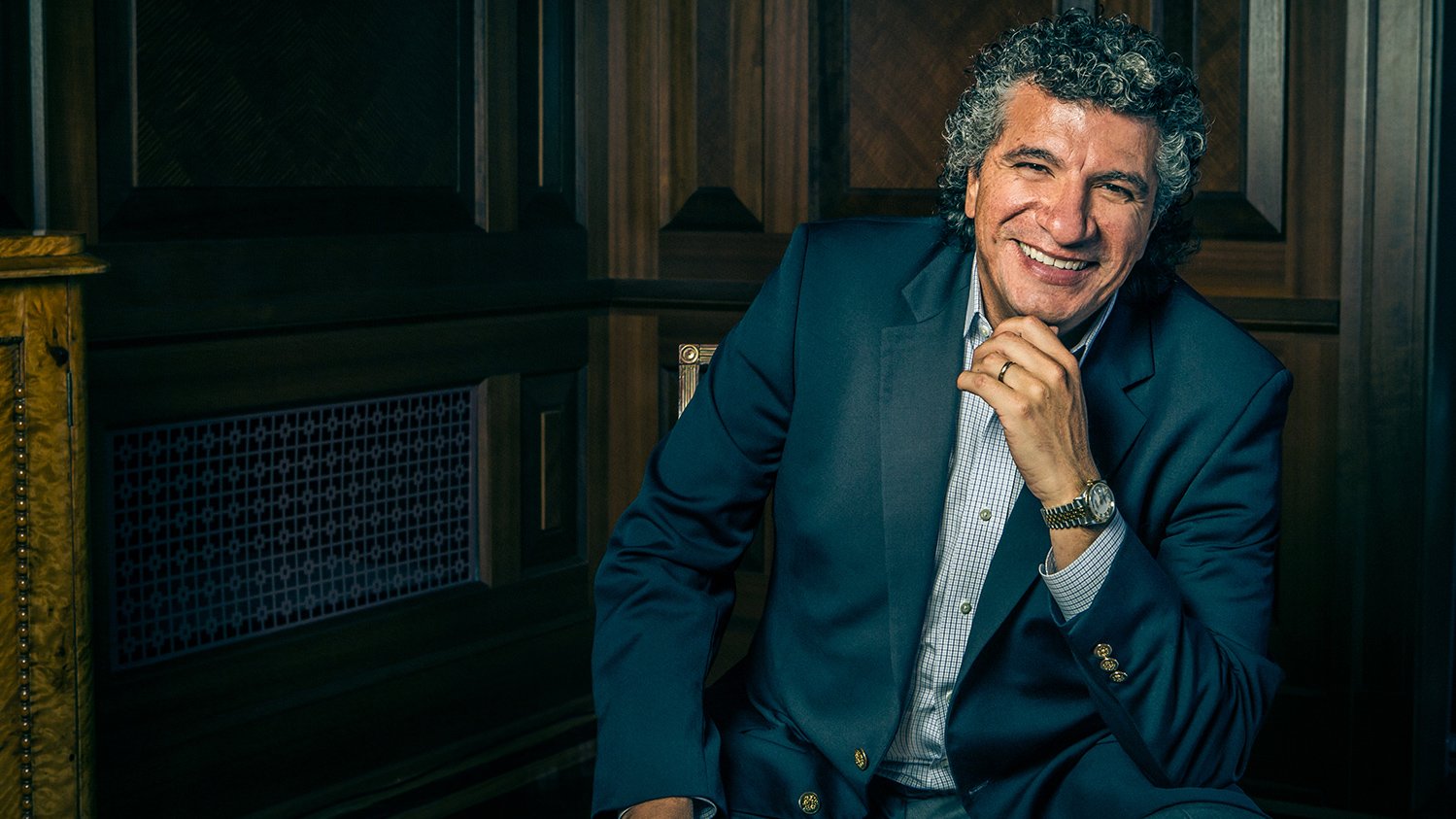
Conductor Giancarlo Guerrero
- My favorite classical discovery of the decade was at a CSO concert. Giancarlo Guerrero made his conducting debut with the CSO in 2019 and shared Sinfonía Buenos Aires by Astor Piazzolla. As Giancarlo said in a WFMT interview, it was incredibly fun to hear the orchestra turn into a giant tango band! — Michael San Gabino, Producer
What was your favorite Chicago performance or WFMT broadcast of the decade?
- Sneaking around the station in the hopes of catching a glimpse of Supreme Court Justice Ruth Bader Ginsburg made for an interesting day! — Anna Goldbeck, Continuity Coordinator
- Ruth Bader Ginsberg Opera and the Law on Impromptu — Mary Mazurek, Recording Engineer
- There are many wonderful WFMT broadcasts, including on Introductions, but one of my favorite WFMT broadcasts was when Associate Justice Ruth Bader Ginsburg shared her favorite classical music recordings and spoke about opera and the law. — Michael San Gabino, Producer
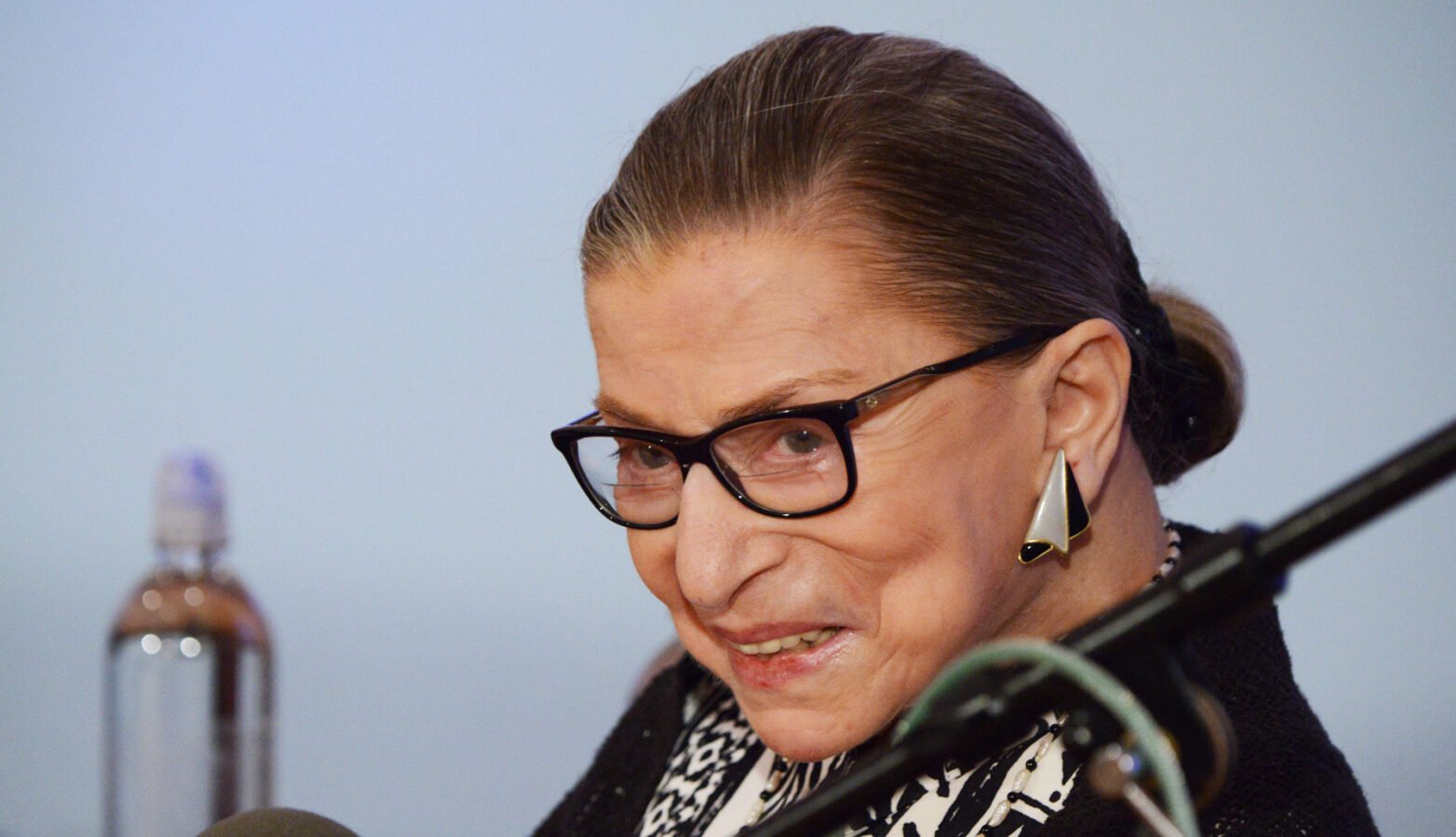
Ruth Bader Ginsburg during her visit to WFMT
- Attending the Chopin Competition in Warsaw in 2010 and 2015 and being immersed in his music for two weeks with other Chopin music-lovers — Lisa Flynn, Program Host
- My favorite Chicago performance, which was also a WFMT broadcast, was Show Boat by Jerome Kern and Oscar Hammerstein II, in the Francesca Zambello production at Lyric Opera of Chicago. Show Boat marked a turning point when it premiered on Broadway in 1927, but it can seem dated today. This production, which has since been shared widely at other major opera companies, felt completely relevant and current, and it was musically stellar. — George Preston, Vice President & General Manager
- My favorite broadcast was the 2015 Lyric Opera of Chicago performance of The Passenger, by Mieczyslaw Weinberg. My favorite performance was Andrew Bird’s Gezelligheid in 2013 — Daniel Goldberg, Producer
- In 2013, I was walking just outside Millennium Park in the middle of the afternoon on a weekday just after visiting a friend at the Art Institute. I overheard a soprano rehearsing in the Gehry Pavilion, and she sounded distinctly like Renée Fleming… Lo, and behold, it was Renée Fleming. She was rehearsing for the upcoming performance of A Streetcar Named Desire. It was one of those incredible surprises that you could only stumble upon in a city like Chicago or New York. — Kylie Harwell, Digital Contributor
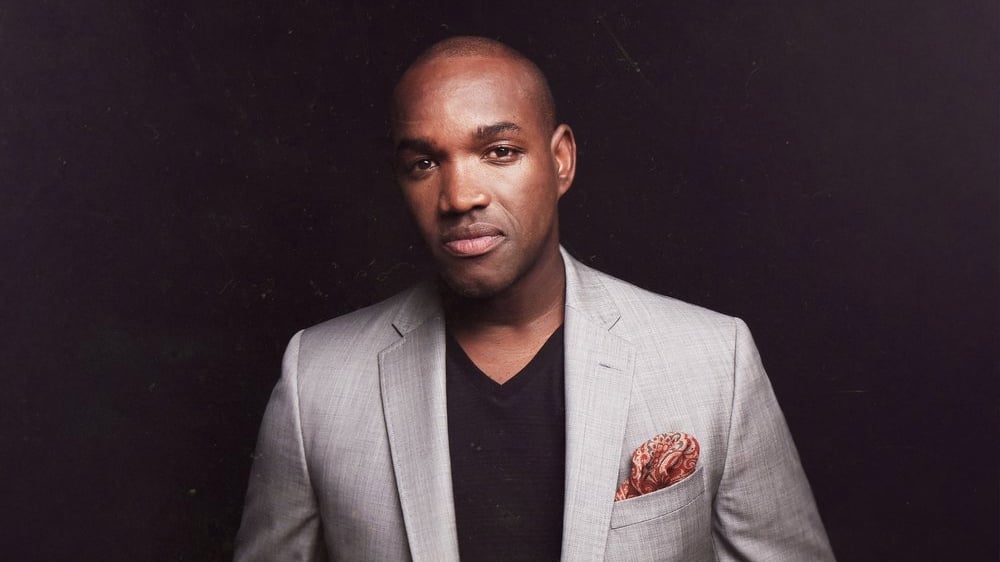
Tenor Lawrence Brownlee
- So many wonderful artists have shared incredible performances on Impromptu – tenor Lawrence Brownlee, the orchestra The Knights, and the dynamic Dover Quartet among them. Perhaps the most unexpected was when the American String Quartet played Paul Cantalon’s 2017 composition inspired by Salman Rushdie’s novel, The Enchantress of Florence, and the venerable author personally narrated excerpts amidst the music. And then there was the day in 2014 that legendary soprano Jessye Norman shared an hour of her favorite recordings with Kerry Frumkin, including “Beim Schlafengehen” from her own recording of the Strauss Four Last Songs. For live performances, the Harris Theater and Lyric Opera’s collaborative vocal series, Beyond the Aria, provides a unique, intimate, and sparkling experience every time. And time itself changed form in 2015 when Alan Gilbert conducted From the Canyon to the Stars at the Santa Fe Chamber Music Festival. The 90-minute piece was played straight through, but Messiaen’s music, and this extraordinary performance, seemed to pass in a fraction of that time. — Louise Frank, Producer
- Angela Denoke (again) in Lyric Opera’s 2015 stellar production of Wozzeck — Candice Agree, Program Host & Producer
- Nicola Benedetti at the CSO — Tad Hassa, Music Database Assistant
- Jesus Christ Superstar at Lyric Opera — Kristina Elstner, Operations Assistant
What future do you see for the next decade of classical music?
- My wish is for greater access to live classical music performances, from unconventional performance spaces to Symphony Center, so that classical music can continue to inspire listeners of all backgrounds — Anna Goldbeck, Continuity Coordinator
- I would like to see classical music accessible to more people. For the genre to survive and thrive it needs new appeal — John Piotrowski, Traffic Manager
- That people come to an understanding that 1) a composer does not have to be dead to be valid, 2) and that all our current treasures were once “new music” and we live in a very exciting age of new composition and should embrace and celebrate contemporary works, or at least give them a chance! — Maggie Clennon Reberg, Program Host & Producer
- I hope we’ll continue to see the positive development of artists and composers taking more control over the way they present music in concert and through recordings — Lisa Flynn, Program Host
- In a world where algorithms seem to be winning, it is a continuing reassurance to live immersed in so human-powered and expressive an art form. — Louise Frank, Producer
- I look forward to the vitality of new voices in classical music over the next decade and more new works that make us think about the complex issues in contemporary society. — George Preston, Vice President & General Manager
- I hope to see more inclusion of non-traditional audiences, expansion of composers and artists from minority groups, and podcasts/radio about classical music’s place in modern-day society. — Daniel Goldberg, Producer
- Equity and education are my two greatest hopes for the next decade in classical music and beyond; we need diverse orchestras, conductors, educators, performers, broadcasters, and audiences who feel welcome and engaged with the arts. The best way to bring about that kind of accessibility is simply through equity in arts education and hiring. We’re getting there, and it’s already improved greatly in the last decade. — Kylie Harwell, Digital Contributor
- More inter-genre collaboration/mixing of genres — Mary Mazurek, Recording Engineer
- Shining a spotlight on composers/performers of color and their stories. A more welcoming and approachable atmosphere in the classical music community. A broadening of musical horizons of long-time classical music listeners. Bridging the gap between classical music enthusiasts and those who find the medium unrelatable. — Kristina Elstner, Operations Assistant
- I have no idea, but whatever happens, WFMT will be a part of it. — Candice Agree, Program Host & Producer

